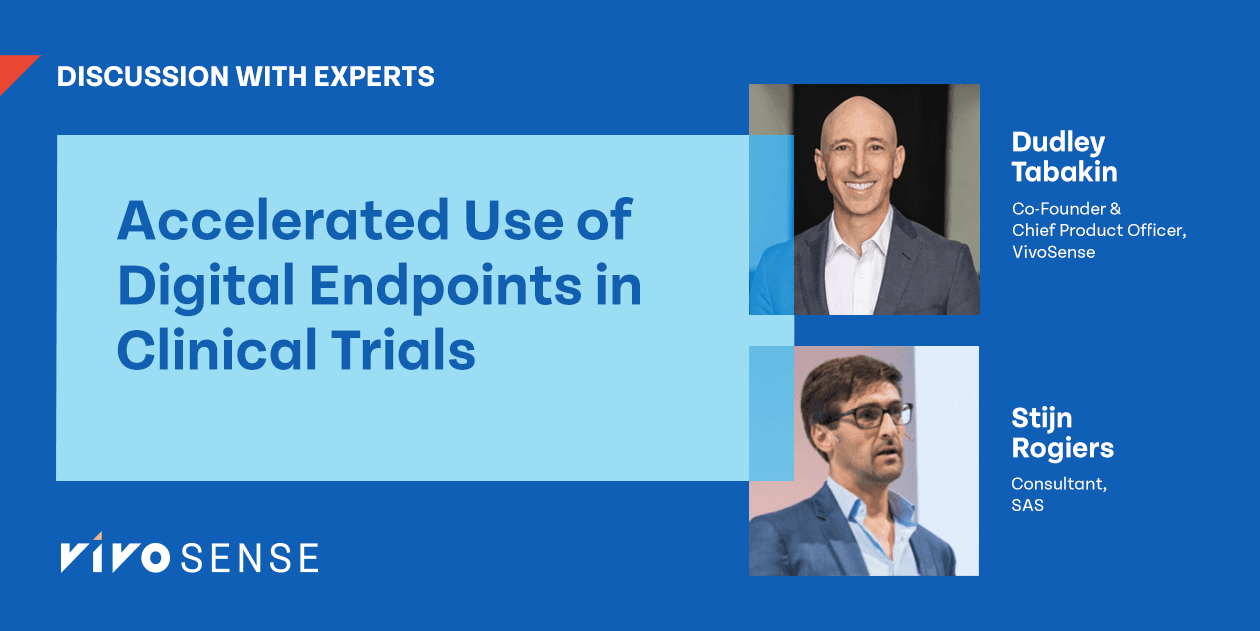
SAS Principal Industry Consultant Stijn Rogiers interviewed VivoSense CEO Dudley Tabakin about the uptake in decentralized clinical trials in response to the ongoing disruptions caused by the Coronavirus pandemic of 2020. As trials move toward decentralization, new processes and strategies are required to effectively collect and analyze patient data in a meaningful and validated way. Here are a few key takeaways from their conversation.
1. Start with exploratory measures and focus on what’s meaningful to the patient.
The most successful sponsors are willing to look at exploratory measures and begin by considering what is meaningful for the patient before assessing what wearable sensors are available and fit for purpose.
2. Regulators encourage the use of real-world measures in clinical trials.
Regulators made it clear that they are prepared to accept exploratory endpoints as long as the evidence is meaningful to the patient population and intended use.
3. Incorporate AI rather than start with AI.
AI is extremely useful in improving the solution, but it’s important to go in with the hypothesis in mind. It’s imperative to be clear on what will be measured and how before considering the use of AI to improve the measure, its efficiency, and outcomes of the diagnostic support.
Read the full article on LinkedIn: Transformation proof-point: accelerated use of Digital Endpoints in clinical trials.
Dudley Tabakin
Dudley Tabakin, MSc. is Chief Executive Officer and co-founder of VivoSense and a fervent believer in “good data” over “big data” in the development of digital endpoints from wearable sensor technology.

